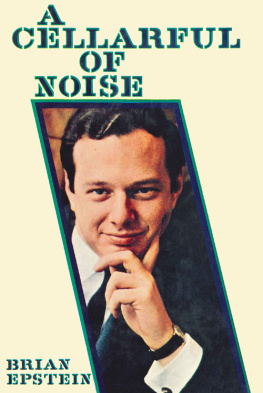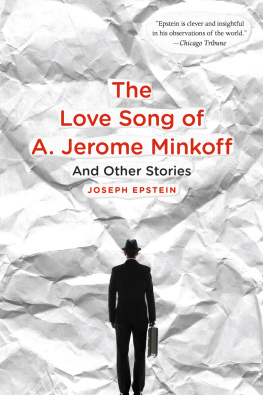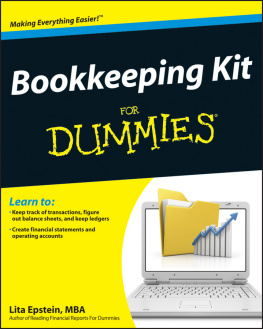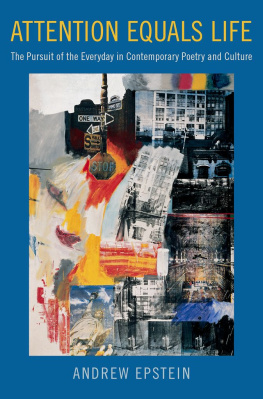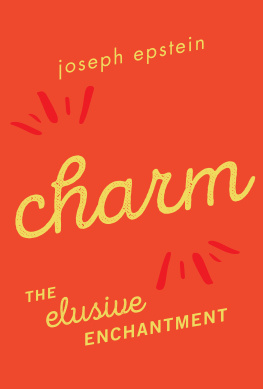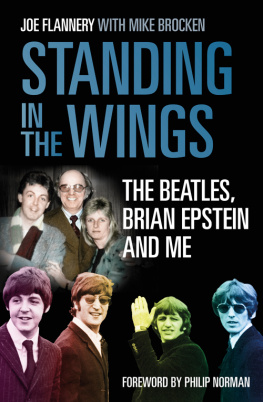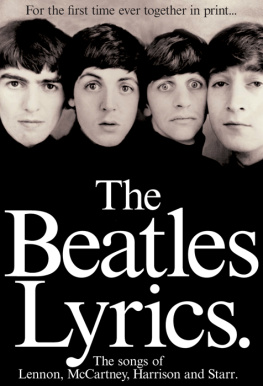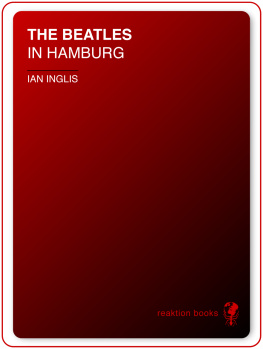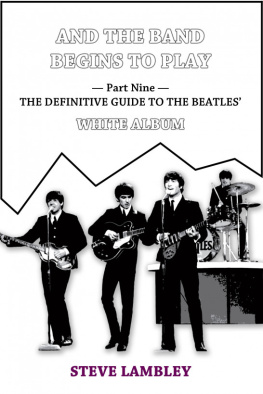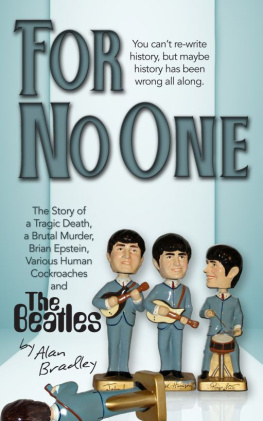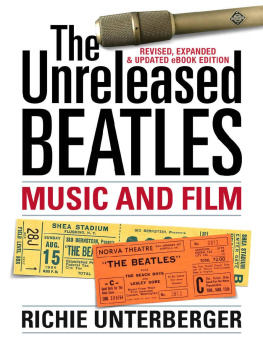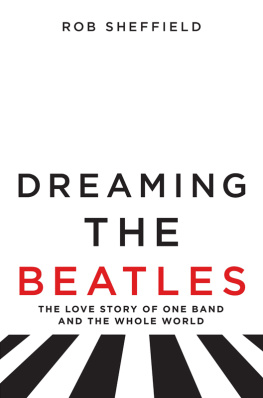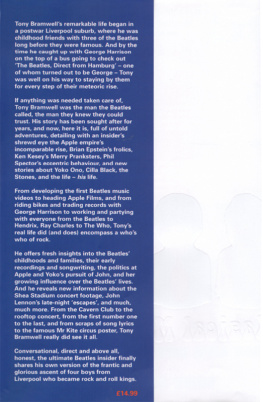Contents
The photos from Life Magazine are acknowledged to Terence Spencer-Life Magazine 1964 Time Inc. Acknowledgement is also due to the Daily Mail for their kind permission to reproduce the Flook cartoon.
Reading through my proofs it occurs to me that Im going to be asked why in the midst of a busy life I should take time off from the personal management of my artistes to whom, after all, I have signed myself to write my own autobiography when Im not yet thirty. Like every pointed query of that nature, the answer can be manifold. But principally it is simply that I wanted to put down at an early stage an accurate account of the emergence of the Beatles and others from my own point of view. So much has been said that is exaggerated, inaccurate, extravagant and open to misinterpretation that I thought that a detailed account could only help and, I hope, prove of considerable public interest. Anyway I enjoyed doing it and I sometimes think that the essence of a creation, be it a book, a disc or a live stage performance, is just that.
Last night I returned from a hectic 72-hour trip to New York. I went to tie up final details of the Beatles U.S. tour and to arrange another jointly by Gerry and the Pacemakers and Billy J. Kramer with his Dakotas in the Fall. Also to see about what may prove to be the most exciting American venture Cilla in cabaret in Washington and New York.
Its not impossible that having smugly written an account of the advent of so many successful discs my luck may change. If it does, it does and I shall devote my endeavour to ensuring the continuance of my artistes as major entertainers as long as they may wish me to do so.
And Id like to put on record that Im very much aware that this book could not possibly have been written without some people who I most sincerely and gratefully acknowledge:
My Mother, Father and Brother
All the artistes I manage
The young people of Merseyside
And last but very much not least Derek Taylor, for whose invaluable help with the preparation of this book and his professional experience I am greatly indebted.
Belgravia, London,
August, 1964.
At about three oclock on Saturday, October 28th, 1961, an eighteen-year-old boy called Raymond Jones, wearing jeans and black leather jacket, walked into a record-store in Whitechapel, Liverpool, and said: Theres a record I want. Its My Bonnie and it was made in Germany. Have you got it?
Behind the counter was Brian Epstein, twenty-seven, director of the store. He shook his head. Who is the record by? he asked. You wont have heard of them, said Jones. Its by a group called The Beatles.
1
T HE group of young musicians who could neither read music nor write it, and who are known as the Beatles, conquered the United States of America on February 7th, 1964, and by implicationsince America is the heart and soul of popular musicthe Beatles ruled the pop world.
By May this year the Beatles had become a world-wide phenomenon, like nothing in any of our life times, and like nothing any of us will ever see again. If there was a turning point in their careera specific date on which the breadth and scope of their future was to be altered, then it was the day their Pan-American Clipper touched down at John F. Kennedy Airport, in New York, to a welcome which has seldom been equalled anywhere in history.
Nobodycertainly not me, though my optimism was persistent from the very start, could have foreseen the excitement and the drama, and the incredible curiosity aroused by the arrival on American soil of these four long-haired lads from Liverpool.
I remember very well the night earlier that month in Paris, when a cable arrived from New York which said simply, Beatles Number one in Cashbox Record Chart, New York with I Want to Hold Your Hand. We simply could not believe it. For years the Beatles, like every other British artiste, had watched the American charts with remote envy. The American charts were the unobtainable. Only Stateside artistes ever made any imprint. And yet I had known that if the Beatles were to mean anything in America, and if the Beatles were to make a record which would sell in America, then I Want to Hold Your Hand was that record.
At all stages of the Beatles career I and they seemed to have reached what we believe to be the ultimatefirst of all it was the recording contract with E.M.I, away back in 1962. This, to us, was the greatest thing that could happen. Then it was the success of their first record; but this of course was only the beginning. The next ultimate was the number one position of Please, Please Me. There could be, we believed then, nothing more important or dramatic or thrilling than to be number one in the British record charts. But one goes on and on andwith the qualities of the Beatlesupwards and upwards, and our next high spot was the first appearance on Sunday Night at the London Palladiumthe top television show in Europe.
So whats left? Came November 1963 and the Beatles were selected for the Royal Variety Show before the Queen Mother. Another ultimate.
With all this behind us so few things seem to remain for them to conquer. Always America seemed too big, too vast, too remote and too American. I remember the night we heard about the number one position in Cashbox I said to John Lennon There can be nothing more important than this, adding a tentative Can there?
A journalist sitting nearby, eavesdropping as journalists do, said Well Carnegie Hall would be fairly big. And even then though we knew we were on the way to some sort of eminence in America we rejected this because Carnegie Hall was surely the worlds greatest concert platform, rarely, so far as we knew, accessible to pop artistes, however great.
But on Wednesday, February 12th, the Beatles topped the bill at this great hall and a few days earlier I had been forced by pressure of commitments to turn down an offer of several thousand pounds for the Beatles to appear at Madison Square Gardens in New York! We were living in a state of extreme turbulence and excitement which left everybody, except the bland, down-to-earth Beatles, reeling and dazed.
Operation U.S.A. started in November, 1963, so far as I was concerned. The Beatles have always been happy to leave timings, plots, plans, schemes and the development of their career to me because they were good enough to trust me and because they knew that if there was some important decision to make I would consult them to sound their remarkable instincts and to gauge their reactions.
In November, I took Billy J. Krameranother very successful British artiste whom I had signed in Liverpoolto New York, first of all to promote him and secondlyand more importantly as it turned outto find out why the Beatles, who were the biggest thing the British pop world had ever knownhadnt happened in America.
As I said, I did not imagine that they would be the immediate answer to Sinatra but I did think they would have made some little mark on show business over there because their charm and their musical ability was undeniable, and in America there has always been a receptivity to talent.
The trip for Billy J. Kramer cost me 2,000 because I booked into an extremely good hotel and we lived demonstratively and well in order to impress the Americans that we were people of some importance. Actually, of course, we were people of no great importance to the Americans. We were two ordinary travellersnobody knew me and I didnt know anybody over there beyond three contacts whose names were in my pocketbook.
It was like London in the early days and, as in London in 1962, I started the rounds of the various companiesthe television people, the recording firms, and the first people I spoke to were Vee-Jay. During this time, of course, the Beatles were becoming very big in England.

